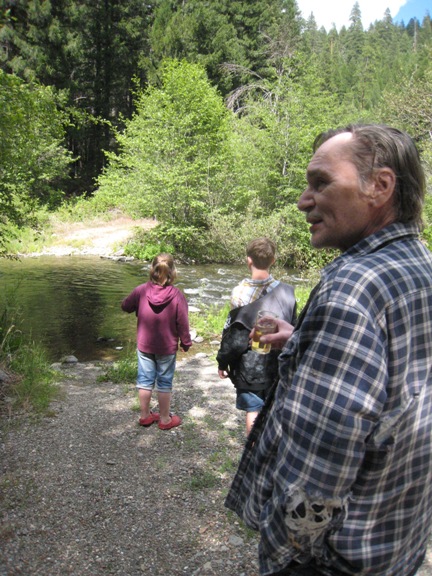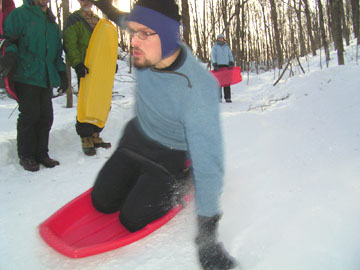The US head XC ski coach is stepping down after 4 years of turning around the ski program. Trond Nystad has made plenty of progress but has some no-nonsense remarks about preparing the winners of tomorrow on FasterSkier.com.
Now, I’m personally totally skeptical about the value of dedicating one’s life to sport, but if you’re going to do it in aerobic sports it seems that we’re not preparing ourselves to do this very well in America.
Trond says young Americans need to step onto the World Cup scene with the ability to train for 850 hours a year. He strongly suggests that this level of training should be such that it’s not an undue stress for these athletes. The only way this can happen is if they’ve been building toward such efforts for most of their lives already. How can this be most readily done?
There’s an interesting possible convergence here.
Is there a chance that the values and base needed for the best in sports maybe is also healthy for everyday life?
I’d think it could be if it met certain parameters.
How can one find the time and energy to get anywhere close to that kind of training in? I can think of only one way: to replace daily time which is otherwise more poorly used with training.
For schoolkids and even most workers the thing that comes to mind first is THE COMMUTE.
Most people live within an hour’s bike ride from school or work. So why not bike it every day? Probably most have commutes or bus-rides that could be readily rollerskied as well or even run on foot.
Another downtime tends to be TV-time at night. For some kids night-time is used for even worse activities. Maybe more kids could learn from the terrifying training schedule of swimmers. What would be the effect on kids and young adults if they went to bed earlier and got up earlier? 9pm to bed, 5am to wake up. I bet they’d tend to be far healthier and save lots of money, to boot! Now, I don’t necessarily recommend going and spending a few hours immersed in water after waking up so early but getting outdoors into the fresh air year-round at an early hour is probably healthy all-around.
Time-periods which can be relative downtimes might be right before and after school and work and even during lunch-hour (especially for young adults who might be starting to over-eat and putting on weight). Such times might be quite easy to spend doing quick circuit-training routines in gyms at school and at the workplace (many worksites now have gyms).
The trick for making such lifestyles be workable is to make them add to life and to be sociable, healthy, stress-relieving, life-simplifying and financially beneficial.
When I was a kid I was gung-ho into this kind of lifestyle: I hated being cooped up, so I rode my bike whenever I could. If I knew it could’ve helped me be a ski champion, I may well have done it year-round or put more structure into it (hard days, easy days…).
People need to know that human-powered commuting hardly takes more time than motorized.
It can also be sociable. My brother and I used to meet various classmates at points along our bike ride to school. Most of these kids were also on the basketball and running teams. It’s nice to know that our daily commutes probably contributed to their sports success.
Time spent doing most anything in the fresh air is readily converted by kids—or anyone!—into positive learning experiences.
Offhand, I see no downside to such a lifestyle. Sure, some people live too far away. But I could see many sensible people moving to get the benefits of this lifestyle.
And if such a way of life also helps give one a better base for excelling at outdoor sports later on, all the better.
https://www.fasterskier.com/news3249.html






